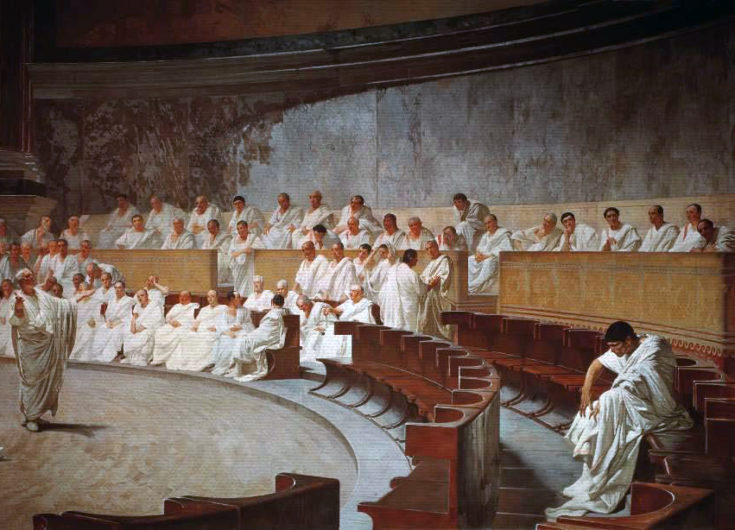

Cicero on Justice, Empire, and the Exceptional Republic
Cicero played no significant commanding role in the civil wars that marked the end of the Roman Republic. Nor could he boast of a distinguished military or diplomatic carreer prior to that chaotic period. Cicero had risen from an obscure family to the height of consular power in Rome, through his forensic and rhetorical ability and by forging a link between Rome’s old aristocracy and the equestrian class. Cicero could claim neither conquest of Gaul, nor subjugation of a foreign enemy like Carthage as grounds for posterity considering him an authority on grand strategy. Despite this, we find in Cicero’s moral and philosophic works a powerful theoretical framework for understanding (and justifying) the strategy and policy of an imperial republic such as Rome. Within this framework are serious thoughts about the relationship between power, interest, and the values of a republican polity. Not only are these thoughts profound and worthy of consideration in their own right, but they proved deeply influential to later thinkers. Importantly, these ideas would ultimately inform the ideological self-image of the Roman Empire.

